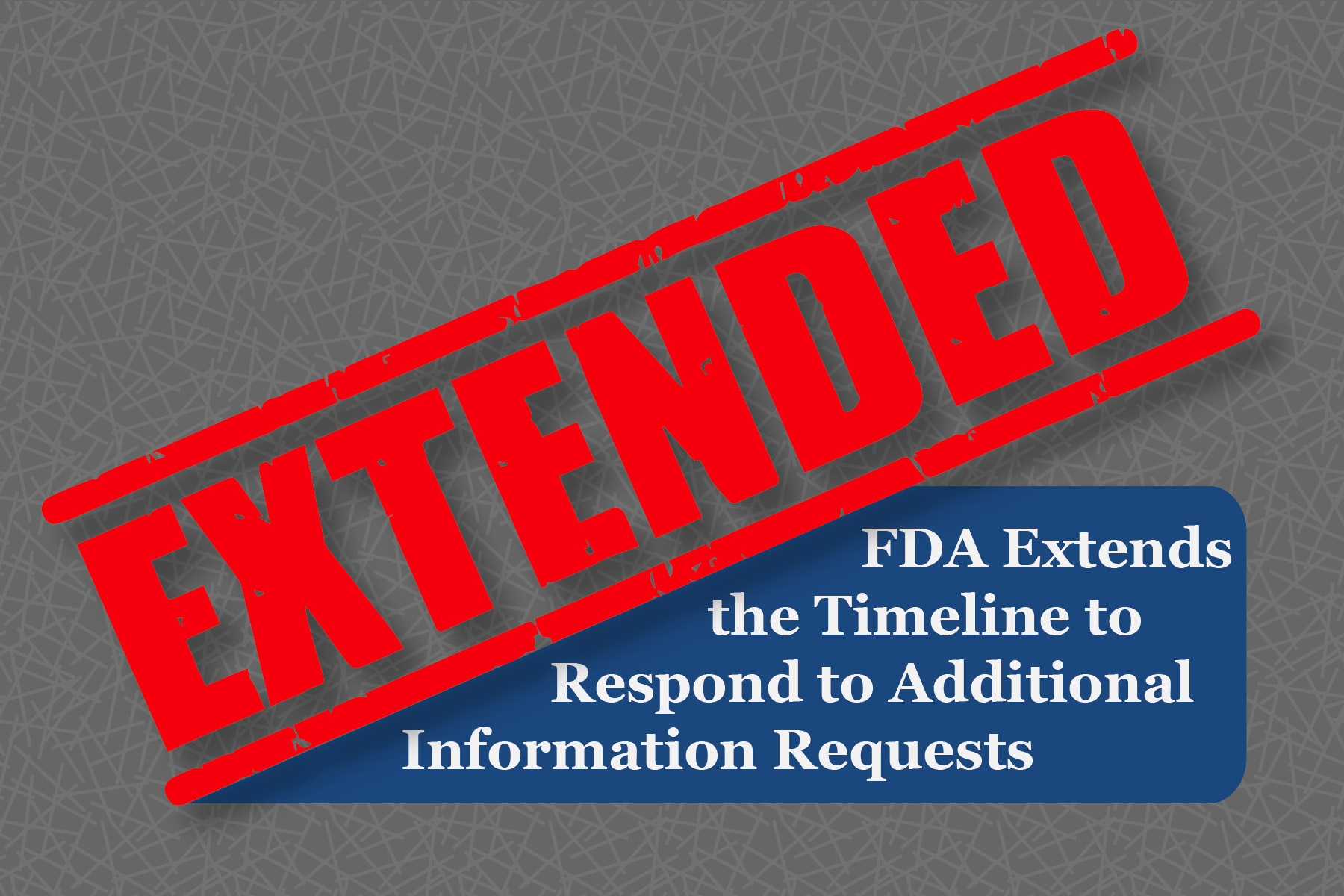The FDA revised its guidance document ‘Effects of the COVID-19 Public Health Emergency on Formal Meetings and User Fee Applications for Medical Devices — Questions and Answers’ which was originally released in June, to give device sponsors additional time in responding to FDA’s requests for additional information for device applications that are on hold.
At the onset of the pandemic, FDA realized that device makers were faced with unprecedented challenges related to supply chain issues, human resources, etc., while on the other hand, the FDA saw a surge in EUA activities which required shifting of staff resources at the FDA. During this time, the FDA released a guidance document to extend the timeline for responding to the FDA’s requests for submissions/applications that were put on hold. The originally released guidance document provided a sigh of relief to device sponsors by allowing an additional 90 day period beyond the response date initially assigned. 1
Under the revision of the same guidance document, the FDA provides an additional 180 days for submission of responses to the FDA’s requests before they are withdrawn. For premarket approval (PMA) applications and humanitarian device exemption (HDE) applications, FDA typically allows 360 days for applicants to submit a complete response to a major deficiency letter and 180 days for responses to additional information letters for 510(k)s and de novo requests.1
This policy applies to the submission types listed below, which are placed on hold pending additional information or complete response to a major deficiency for PMA or HDE. These submission types do not require the submission of an extension request by the sponsor:1
- Pre-market application
- Humanitarian Device Exemption
- De Novo applications
- 510(k)
FDA also mentioned in the guidance document that due to the pandemic and emergency authorization services taking a priority in its operations, it is not able to keep up with the current level of performance associated with the timelines and plans on communicating any delays directly with the sponsor.1 EMMA International is here to help you with all your regulatory needs, call us at +1 248-987-4497 or email us at info@emmainternational.com.
1FDA (Dec 2020) Effects of the COVID-19 Public Health Emergency on Formal Meetings and User Fee Applications for Medical Devices — Questions and Answers (Revised) retrieved on 12/27/2020 from https://www.fda.gov/media/139359/download






